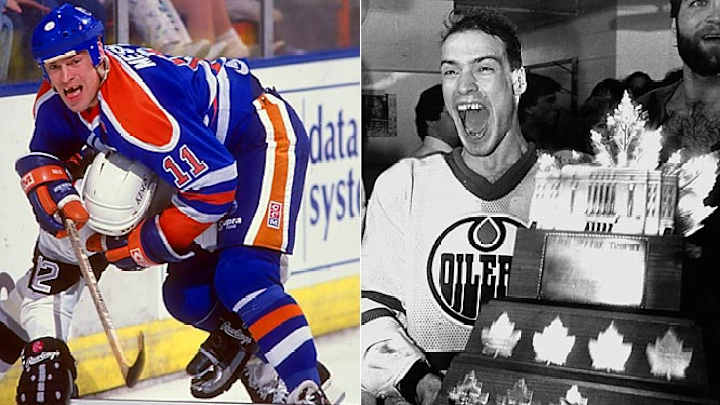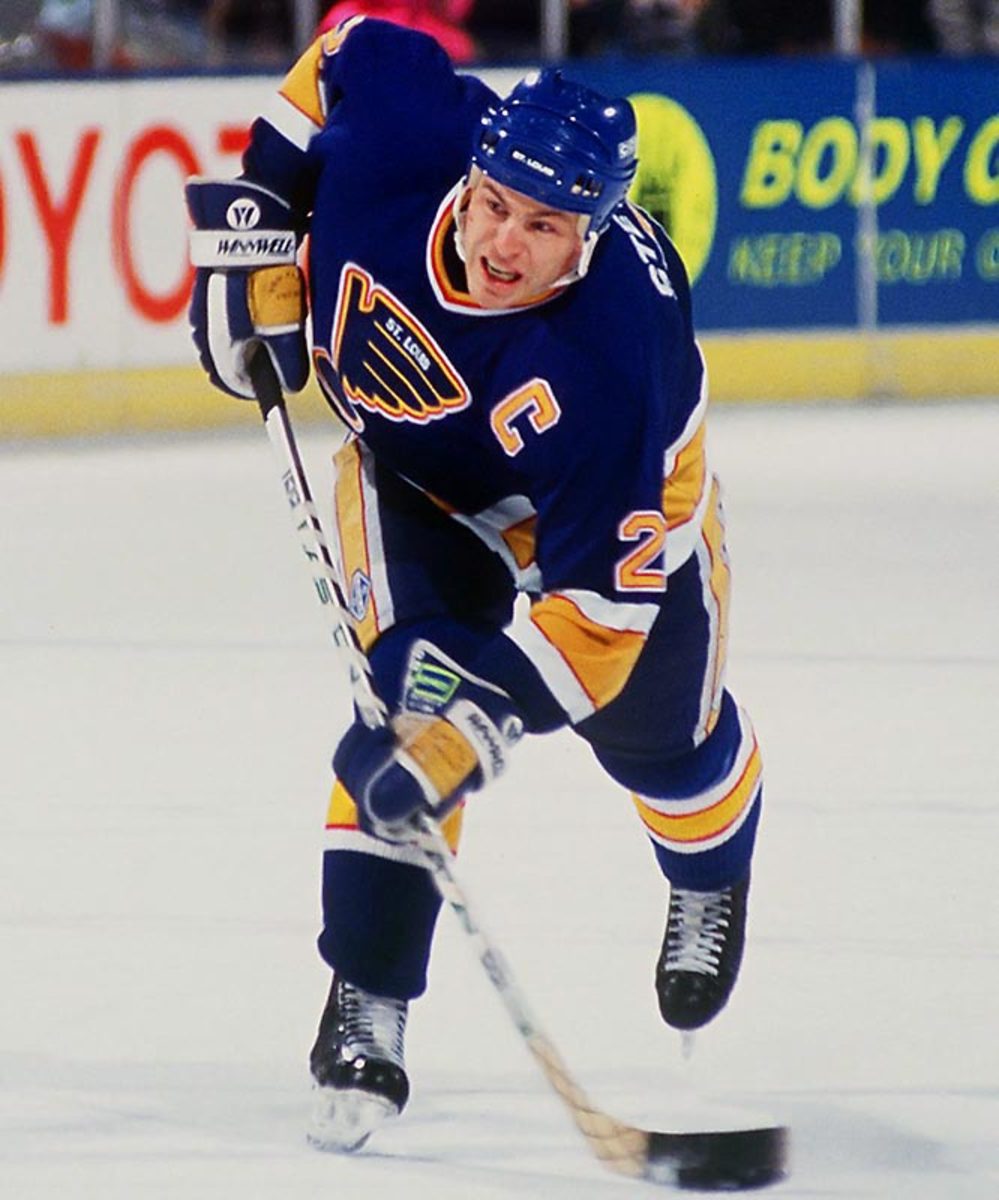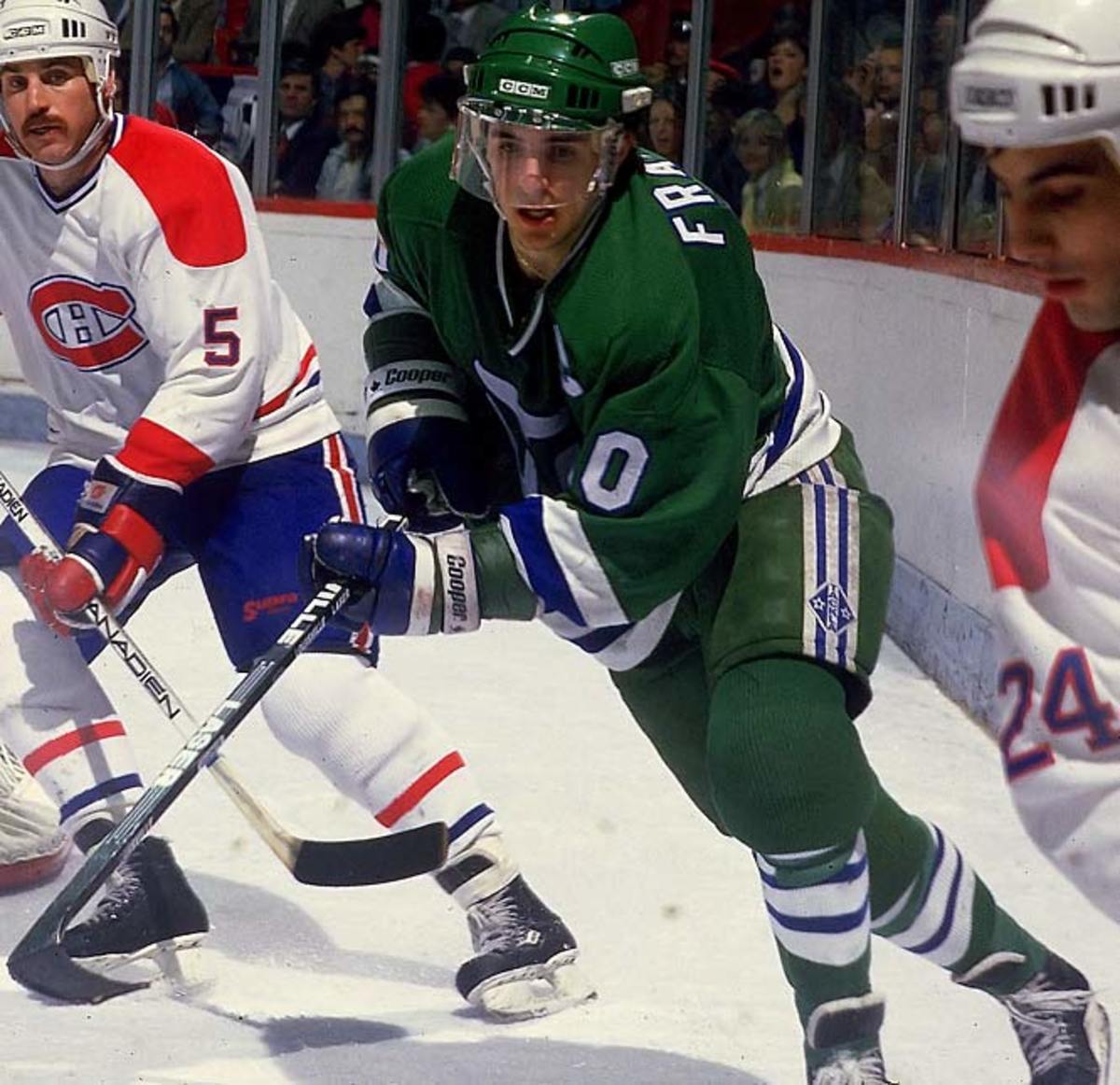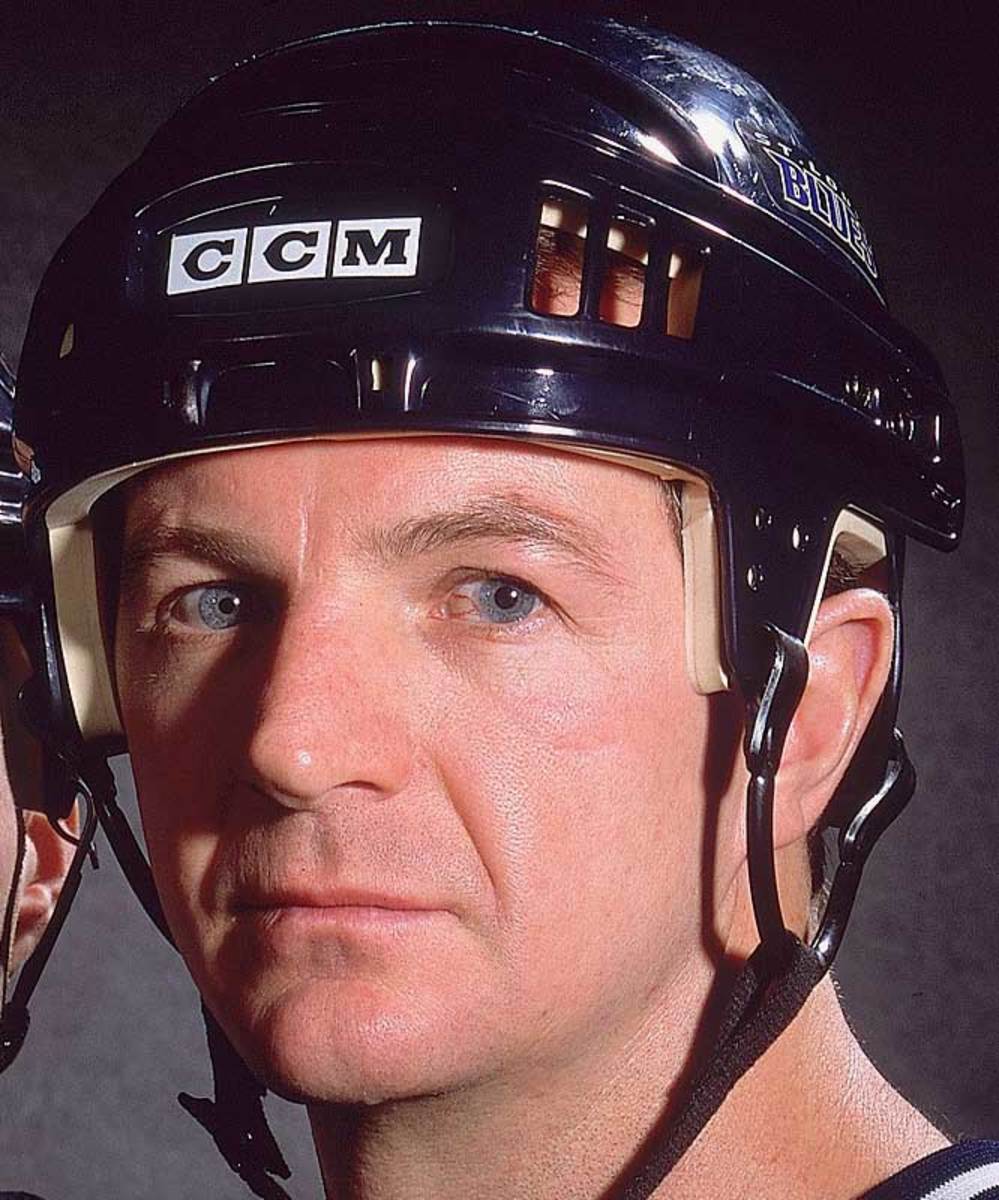Hall of Fame: Class of 2007

Hall of Fame: Class of 2007
Mark Messier, center

A big, fast, edgy scorer and playmaker as well as the consummate leader, "Moose" was the definition of complete player and the fire in the belly of the Oilers' dynasty. He earned the Conn Smythe Trophy (playoff MVP) in 1984 when Edmonton won the first of its five Stanley Cups. Messier fully emerged from the shadow of the departed Wayne Gretzky when, as captain in 1989-90, he reached a career-high of 129 points, won the Hart Trophy (NHL MVP), and led the Oilers to the Cup.
Mark Messier, center

Acquired in 1991 by the New York Rangers in the hope that he would will them out of their 54-year Cup drought, Messier won his second Hart, with a 107-point season in 1991-92. He ultimately delivered the silverware in 1994, and his guarantee of victory over New Jersey before Game 6 of the Eastern Conference finals is the stuff of lore. Messier scored a hat trick to force Game 7, which the Rangers won before beating Vancouver for the Cup, four games to three.
Mark Messier, center

Messier spent three seasons with Vancouver before returning to Broadway in 2000 to close out his illustrious 25-year career as the NHL's second all-time scorer (1,887 points) with 694 goals (7th) and 1,193 assists (3rd). In tribute to the 15-time All-Star's greatest attribute, the NHL in 2006 created the monthly Mark Messier Award for the player who best exemplifies leadership on and off the ice.
Scott Stevens, defenseman

Drafted fifth overall in 1982 by Washington, with whom he spent eight seasons, Stevens brought scoring and bone-jarring physicality to the ice. After topping the 60-point mark four times with the Capitals and establishing himself as one the NHL's most formidable blueliners, the St. Louis Blues surrendered five first-round picks to Washington in order to sign him as a free agent in 1990.
Scott Stevens, defenseman

After one season in St. Louis (1990-91), Stevens was awarded to the Devils as compensation for the Blues signing Brendan Shanahan. Appointed captain, Stevens and his trademark booming hits vs. Detroit in the 1995 Cup final ignited the Devils' run to the first of three championships during his 13-year tenure. In 2000, he won the Conn Smythe as the Devils downed Dallas in six games for the Cup.
Scott Stevens, defenseman

As much as Stevens was a premier defenseman -- he never finished with a minus rating in any of his 22 seasons -- he did not win the Norris Trophy. The 13-time All-Star remained remarkably durable despite his brutal plying style and ranks first all-time among defensemen with 1,635 games played.
Ron Francis, center

Ironically, Francis was a consolation pick by the Hartford Whalers, who drafted him fourth overall in 1981 after the Boston Bruins beat them to the player they really wanted: Bobby Carpenter. Francis scored 25 goals as a 19-year old rookie and ultimately became Hartford's captain during his 10 seasons with the Whalers.
Ron Francis, center

Traded to the Penguins in 1991, Francis joined Mario Lemieux and Jaromir Jagr in time for the first of two successive Stanley Cups (1991, `92). In Pittsburgh, Francis blossomed into one of the NHL's most respected two-way players and leaders. With Lemieux injured in 1994-95, Francis took over as captain and won the Selke (best two-way forward) and Lady Byng (gentlemanly play) trophies.
Ron Francis, center

After seven full seasons in Pittsburgh, during which he hit the 100-point mark twice -- including career-highs of 119 and 92 assists in 1995-96 -- Francis was signed by Carolina at age 35 in 1998. He spent five seasons with the Hurricanes, helping them reach the 2002 Stanley Cup Final, and finished his career with 549 goals, 1,249 assists (2nd all time) and 1,798 points (4th). He is now the `Canes director of player development.
Al MacInnis, defenseman

After developing his trademark slapshot by practicing in his family's barn in Port Hood, Nova Scotia, MacInnis was drafted 15th overall by the Calgary Flames in 1981. He made quite an impression on the NHL by splitting the mask of goaltender Mike Liut in a 1984 game. No one-trick pony, MacInnis was a crafty power play quarterback who liked to tee up the slapper and then dish off. Among his career high of 103 points in 1990-91 were 75 assists.
Al MacInnis, defenseman

An exceptionally hard worker, MacInnis spent 11 full seasons with Calgary. He was a lethal postseason scorer -- 160 points in 177 career playoff games -- who helped the Flames reach the 1986 Cup final. He won the 1989 Conn Smythe with 7 goals (including four game-winners) and 24 assists in 22 playoff games as Calgary won the Cup by beating Patrick Roy and the Canadiens.
Al MacInnis, defenseman

Traded to the Blues for Phil Housley and picks in July 1994, MacInnis proved he was more than just an offensive threat by winning the Norris Trophy in 1999. He spent 10 seasons in St. Louis, his career ultimately shortened by a stick to the eye in 2001. He finished with 340 goals (3rd all-time among defensemen), 934 assists (3rd), 1,274 points (3rd) and 12 All-Star appearances, during which he usually owned the slapshot competition.
